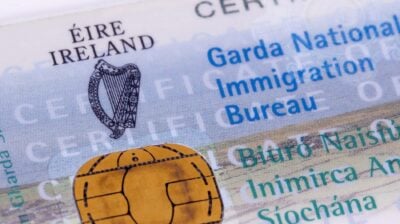Can I get free legal aid in Ireland?
Learn more about legal aid and who is entitled to it

If you need to go to court and are living on a small income, there are state-funded schemes that can help you pay for legal services. This can mean that the services of solicitors and, if needed, barristers, are available to you at affordable rates. These services can cover anything from being represented in court, to having a solicitor’s letter written for you. Legal aid can also extend to having an interpreter, an advocate and certain professional reports being prepared.
What are the different types of legal aid in Ireland?
You can apply for state funded legal services if you need legal help and are on a low income. The two most commonly used state-funded services are civil legal aid and criminal legal aid. Both civil and criminal legal aid covers representation by a solicitor or barrister in court, and also oral or written advice provided by a solicitor or barrister. You may not need to go to court in all circumstances.
Legal aid is also available to people who are arrested and detained as part of a Garda investigation and this covers legal advice and/or attendance at a Garda station.
It is important to remember that although criminal legal aid is free, legal aid for civil matters must be paid for.
Civil Legal Aid
Civil legal aid is given only for civil cases. Civil cases usually involve one person or group taking a case against another person or group. An example of a civil case would be a parent of a child bringing the other parent to court for not paying their child support.
The Legal Aid Board provides legal aid and advice to people unable to pay for it themselves. You can apply for it online, by post or in person in a Legal Aid Board law centre. However, to qualify for this legal aid you must meet certain criteria.
If you’re applying for legal aid you will have to take a merits test and a means test to prove you qualify for it.
Merit test for legal aid in Ireland
Legal aid for civil matters in merit tested. A merit test is a test which asks if you had the money to pay for the case yourself, and were not entitled to free legal aid, you would still go to court. It also takes into consideration if a barrister or solicitor would recommend going ahead with the case.
Other factors that may be examined include:
- Do you have grounds for taking the case, or defending the case the other person is taking against you?
- Is it the best way of solving your dispute?
- Would you be likely to win your case?
- The cost to the taxpayer against the benefit you might receive if you win.
Means test for legal aid in Ireland
Legal aid for civil matters is means tested. The means test will decide if you are eligible for legal aid and if so, how much you have to contribute depending on your finances and how much the legal advice is going to cost.
The means test does this by:
- Measuring your income, including your salary, wages and any benefits
- Taking note of your capital resources, which are the things you own such as cars, houses, bank savings and investments
- Taking evidence of your latest payslip or social welfare payment slip, proof of identity and rent book or mortgage statement
- Gathering information from the Department of Social Protection and the Revenue Commissioners about your income or capital, if necessary
You must have a disposable income of less than €18,000, and a disposable capital of less than €100,000 to qualify from Legal Aid Board assistance. Your family home is not considered when assessing disposable capital.
All persons under 18 years and those over that age in full-time education are regarded as dependants of their parents, step-parents or guardians. In those circumstances, the parents, step-parents or guardians income is taken into account if they are looking for legal services.
Charges
There are minimum charges for receiving civil legal aid, however, you can apply for a waiver in a case of hardship. There is no charge in childcare cases, but outside of this type of case the normal charge begins at €30 up to a maximum of €150 for legal advice, and a minimum of €130 for legal aid including representation. The total cost of legal representation will depend on what your means and capital is. In certain circumstances the Legal Aid Board can waive the requirement that you have to contribute to your legal fees.
What can I do if I am refused legal aid?
If you apply for legal aid or advice to the Legal Aid Board and it is refused, you can appeal this by asking the decision maker to review their decision, and if you are still unsatisfied you may apply to the Appeal Committee of the Legal Aid Board to review this. You can submit your written appeal through the Law Centre solicitor that deals with your application.
Legal aid for asylum seekers in Ireland
The Legal Aid Board provides legal aid to asylum seekers in Ireland to assist with the international protection process. More information on this is available here, but it is also means tested and requires a payment of a minimum contribution of €10 for legal advice and legal aid.
Legal Aid for childcare proceedings taken by Tusla
In Ireland the law generally aims to keep children in their homes so they can be raised by their families. However, in some cases where a child is not receiving the proper standard of care and their health and welfare is at risk, Tusla may seek to have the child taken into care. If Tusla want to place your child in care but you do not want them to it can apply for a Care Order from the courts. A Care Order is an order made by a Judge to place a child in care of the Child and Family Agency (Tusla).
If Tusla take proceedings against you to place your child in care you are entitled to legal aid who can help you with your case and represent you during the court proceedings. You can find out more information about receiving legal aid for childcare proceedings from the Legal Aid Board.
Criminal Legal Aid in Ireland
Criminal legal aid is given only for criminal cases. A criminal case is usually when a law is broken and the state brings the person who broke it to court. An example of this would be if a person was charged with murder by the Gardaí and were then brought to court by the state to go on trial.
For legal aid for criminal law cases you apply to the District Justice /Judge on your first appearance in court. More information is available here.
If the offence is a serious one and you can’t afford legal fees you can get free legal aid. However, you can also get free Criminal Legal Aid for less serious matters in exceptional circumstances, for example, if you lack formal education, have a physical or mental disability, are otherwise ill, are experiencing severe emotional distress, or lack the capacity to understand the court process.
You will not be granted legal aid in a criminal matter where the judge views the matter as not being serious enough, for example, where it is a minor road traffic offence. If the judge is of the view that you have money to pay for you own legal representation you can also be refused.
You can’t appeal the judge’s refusal to grant Criminal Legal Aid. However, you can make another application in a higher court if it the case is sent there. If you express a desire to be represented by a particular solicitor, the judge will usually assign them to you, however this is not an absolute right.
Learn more about who can help you receive free legal aid in Ireland.
Need more information, advice or guidance?
We offer information, advice and guidance about the issues that matter to you. Our online Youth Information Chat service is for 16 to 25 year olds and is available Monday to Friday, 4pm to 8pm (excluding Bank Holidays).






